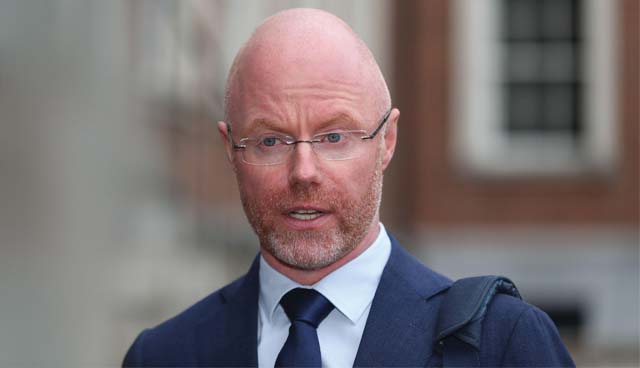Sláintecare: Institutional resistance suggestion “nonsense”

The Health Minister Stephen Donnelly TD has said he is committed to introducing Sláintecare, despite a number of high-profile resignations appearing to raise doubts over the outlook for the universal health plan.
The resignation of Tallaght Hospital-based gastroenterologist Anthony O’Connor in late September was the third successive high-profile resignation from the Sláintecare Implementation Advisory Council (SIAC), following in the footsteps of chairman Tom Keane and Executive Director Laura Magahy.
In a resignation letter seen by the Irish Times, O’Connor hit out at what he described as the “bulldozing” of the culture of collaboration, respect, community, and engagement envisaged in the Sláintecare report.
O’Connor went on to say that the values and behaviours of some people occupying “mission critical” roles are likely to be fatally destructive of the plan and said that while it was possible “some iteration” of Sláintecare may emerge, he expects it to “little or no relation” to what was originally proposed.
O’Connor’s resignation came a day after the advisory council met with HSE Chief Executive Paul Reid and Department of Health Secretary General Robert Watt in late September 2021. All three members who have resigned have raised concerns about the progress of reforms to bring a single-tiered health system and end private care in public hospitals.
Watt and Reid are to co-chair a new board to replace the Sláintecare Implementation Advisory Council, the term of office of which ends on 24 October. Some members had appealed for an extension for the SIAC to continue its work until the end of the year. It is thought that some members of the SIAC may be asked to join the new board.
Critics have said that plans by the Health Minister for the new group to focus on planned regional health structures is not in keeping with the original vision for Sláintecare. Concerns have also been raised that there appears to be no plans to have patient representatives on the new body.
Donnelly and Watt updated the Joint Committee on Health on 6 October. At the meeting co-leader of the Social Democrats, Róisín Shortall TD said that “a hostile takeover of Sláintecare” had occurred, while Fine Gael TD Colm Burke suggested there was resistance to reform within the Department.
However, while the Minister accepted a “perception among some that change is not happening”, he pointed to change right across the system, citing that 97 per cent Sláintecare’s projects are reportedly on track.

“I cannot help coming to the conclusion that this is a hostile takeover of Sláintecare.” Róisín Shortall TD
Watt described the suggestion of institutional resistance as a “nonsense” and rejected the suggestion that there was a “vast conspiracy” to block the introduction of universal healthcare.
Donnelly told members of the joint committee that a number one priority of a new taskforce would be to tackle long waiting lists, highlighting that they were “terrible before Covid and have worsened since”.
In September, statistics from the National Treatment Purchase Fund (NTPF) showed an 8 per cent rise in hospital waiting lists from the previous year and expectations are that the number of people on hospital waiting lists will soon surpass one million, despite significant reforms and plans to address timely access to care set out at the launch of Sláintecare four years ago.
The Health Minister has said that efforts to address the issue will be modelled on the vaccine taskforce, which planned and delivered the programme.





